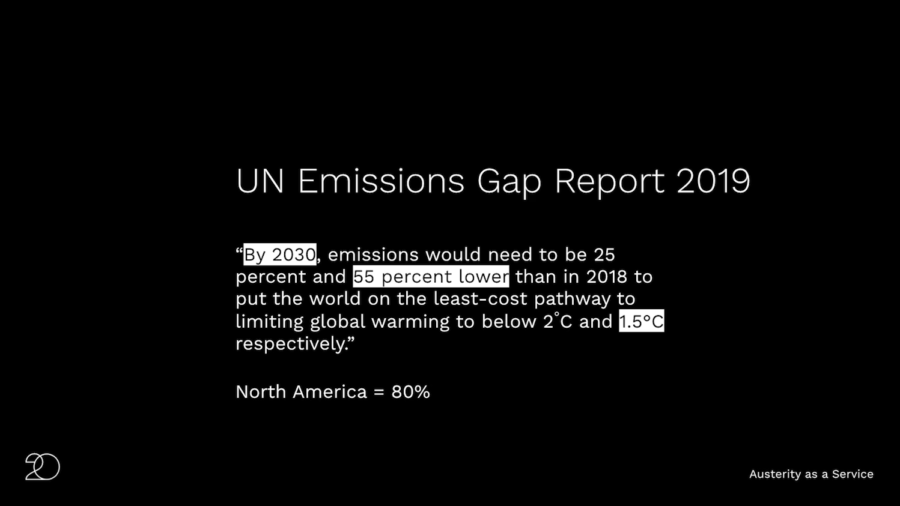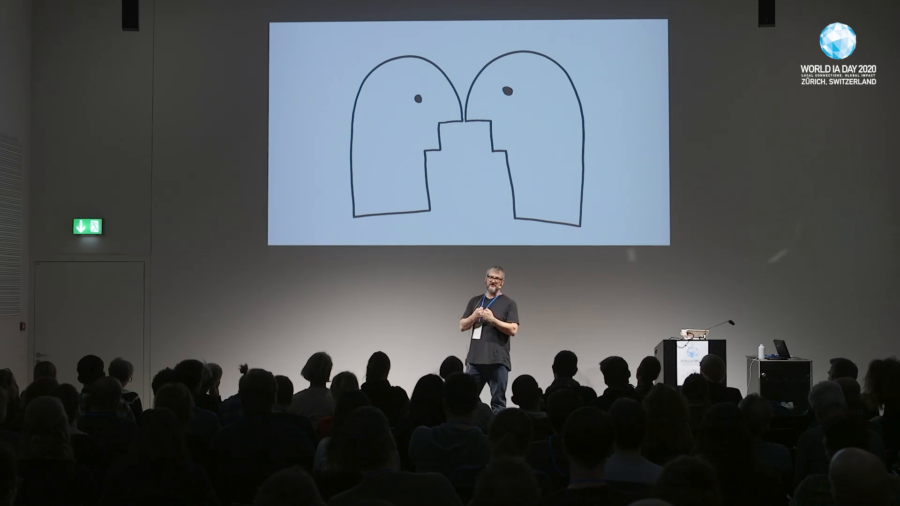We don’t have an unlimited number of innovations to keep pushing the hockey stick shape of growth forward. Each time we innovate and we push the end further ahead in time, it shortens the amount of time in total that we have to address complexity and problems. So this is…this is not good. I’m just gonna say it, this is not good.
Archive (Page 1 of 2)

As a human-centered designer what is my role, what is our role, in this kind of bigger picture? If this is the dominant lens of society, what’s our contribution?
If you were to ask me what the crisis in the present is, as an evolutionary biologist I have to go back millions of years and try to connect all the dots, going back to man as a single-celled organism to present time, and saying what is it that is causing modern consternation? More importantly, is there a pattern? Has this happened before? Were there some ordinary people like you and I, shopkeepers in Rome, who were standing around and saying, “You know, our leaders don’t seem to be on top of our problems. They seem to be getting worse one generation after another.”
We’re in an era of overlapping crises, and I think that’s what makes it sort of unique. We’re aware of the financial aspect, which is sort of exponential increase in debt. We’re also aware that energy, the cost is going up because we’re reaching to deeper and more expensive reserves of energy, at least fossil fuels. So that’s another if not crisis then um… Well, actually it is a crisis, because the world we’ve constructed is based on cheap fossil fuels.
There are biologists who’ve spent their careers working on some species of beetle in the tropical rainforest, and they just love the rainforest in their bones And they feel that when they go testify in Congress to some committee, that they can’t just say, “I love it in my bones and you guys will love it too, if you share it with me.” They have to say, “Oh, we’ve done all this math and computed that there’s an ecosystem service here.” And I think that that has really impoverished our debate about environmental issues.
We are a communal animal that’s developed to believe that it’s the center of the universe. And we behave as such. You know, we want to conquer, because our brain is wired to want to eat and fuck another day, you know what I mean. That’s what we’re wired to do. That’s where our evil comes from. It’s our animal roots that cause us to need things, and desire things.
Some of my artist friends think what I’m doing isn’t art, and I’ve given up on art. It’ll take care of itself. You know. I mean it’s always been there, it will always be there, and we always know that new art never looks like art at first, ever. So why should this be any different? We just have to trust the process. And I would say that must be true for every other discipline.
I see a set of constraints facing us in the future, and they’re all going to be very expensive. First is funding retirements for the Baby Boom generation. Second is continuing increases in the costs of healthcare. The third is replacing decaying infrastructure. The fourth is adapting to climate change and repairing environmental damage. The fifth is developing new sources of energy. The sixth is what I see as in all likelihood continuing high military costs. The seventh is the costs of innovation.
I enjoy clean air and clean water as much as the most rabid environmental person. I just think we can have the products of society, as well as having these things. Progress is a good thing. I’m just simply a realist. And I’m just trying to enjoy life, enjoy family, enjoy friends, and contribute to society as best I can. And I think providing energy, I think providing the metals that society consumes, that people have in their their iPads, in their iPods, in their iPhones… I think that’s an honorable thing to do. What else would you do? You know, why fight that?

